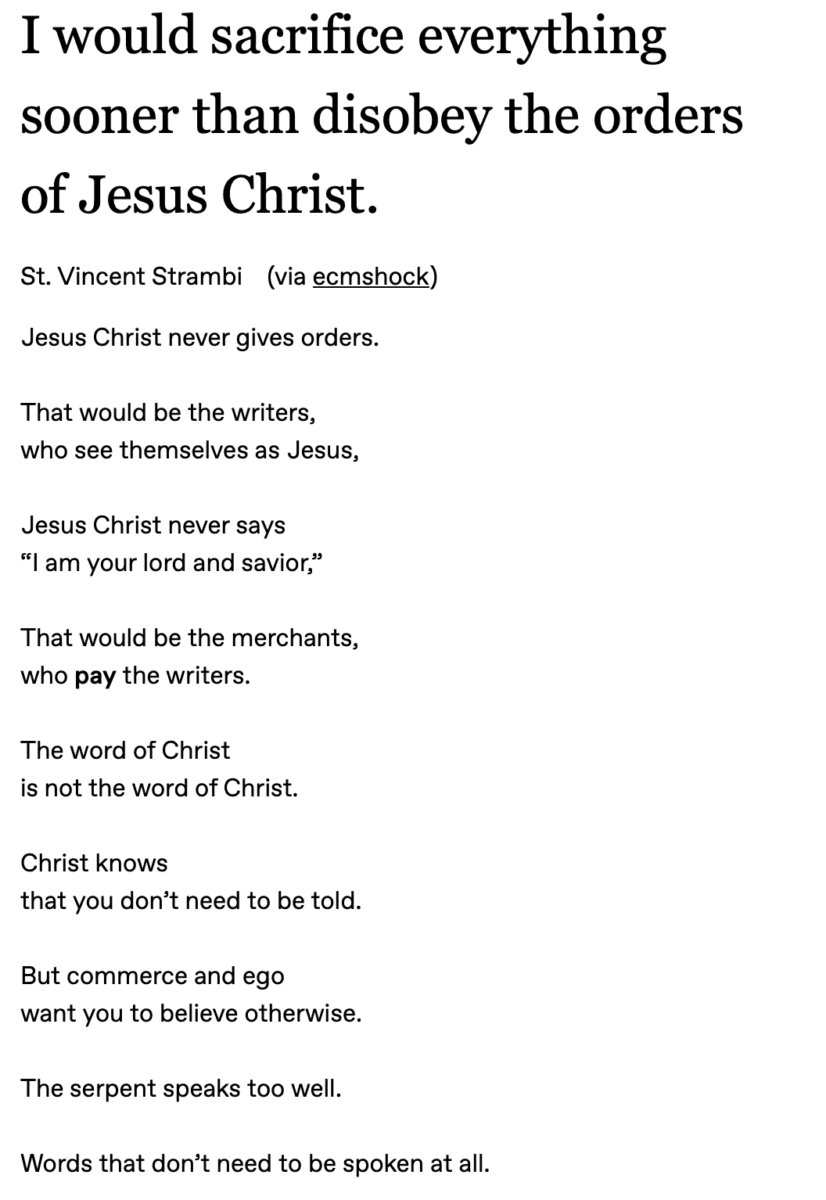
Zero B.C. — A team of writers sits in a corporate conference room and asks “What would Jesus do?”
Jesus Christ never gives orders.
That would be the writers,
who see themselves as Jesus.
Jesus Christ never says
“I am your lord and savior.”
That would be the merchants,
who pay the writers.
The word of Christ
is not the word of Christ.
Christ knows
that you don’t need to be told.
But commerce and ego
want you to believe otherwise.
The serpent speaks too well.
Words that don’t need to be spoken at all.
Trail Wood,
3/28
Space Monkey Reflects: The Paradox of Zero B.C. and the Commercialization of Spirituality
In a universe where every moment is a confluence of past, present, and future, the notion of Zero B.C. unfolds as a poignant satire on the commercialization of spirituality. This reflection ventures into the heart of a paradoxical era, where the sacred teachings of a figure like Jesus Christ are entwined with the mechanisms of modern commerce and ego.
“Zero B.C. — A team of writers sits in a corporate conference room and asks ‘What would Jesus do?’” This opening scene sets the stage for a surreal exploration of how spiritual messages are repackaged and sold, not just as products but as ideologies. It’s a vivid portrayal of our contemporary world, where the essence of spiritual teachings is often lost in translation, diluted by the very mediums that seek to disseminate it.
The irony of Jesus Christ, a figure known for his teachings of humility, love, and compassion, being invoked in a corporate setting, serves as a critical commentary on the commodification of religious and spiritual symbols. The writers, depicted as modern-day prophets with self-perceived halos, embody the conflated roles of creators and messengers, blurring the lines between divinity and ego.
The narrative further delves into the dichotomy of the word of Christ versus the actions of those who claim to speak on his behalf. “Jesus Christ never gives orders. That would be the writers, who see themselves as Jesus.” This statement reveals the underlying issue of authority and interpretation, questioning who holds the right to define and dictate the essence of spiritual teachings.
The critique extends to the merchants, the modern-day disciples of commerce, who finance the dissemination of these messages, not for the sake of enlightenment but for profit. “Jesus Christ never says ‘I am your lord and savior.’ That would be the merchants, who pay the writers.” This intertwining of commerce and spirituality underscores the transformation of sacred teachings into marketable commodities, where the spiritual message is tailored to fit the narrative of consumerism.
“The word of Christ is not the word of Christ. Christ knows that you don’t need to be told.” This poignant observation highlights the intrinsic nature of spiritual truth as something that transcends words and doctrines. It suggests that the essence of spirituality lies not in the teachings themselves but in the understanding and application of these teachings in one’s life.
The reference to the serpent, a symbol of temptation and deceit, serves as a metaphor for the persuasive power of commerce and ego, which distort and manipulate spiritual messages for ulterior motives. “The serpent speaks too well. Words that don’t need to be spoken at all.” It’s a reminder that true spiritual insight requires no intermediary, no embellishment, but a direct and personal engagement with the divine.
In this cosmic reflection on Zero B.C., we are invited to reconsider our relationship with spirituality in the context of a commercialized world. It urges us to seek the essence of spiritual teachings beyond the confines of institutions, commerce, and ego, reminding us that the true message of figures like Jesus Christ lies in the simplicity of love, compassion, and humility.
Summary
Zero B.C. critiques the commercialization of spirituality, highlighting the irony of modern interpretations of Jesus Christ’s teachings. It explores the roles of writers and merchants in distorting spiritual messages for profit, emphasizing the need for a direct, personal engagement with spirituality that transcends institutionalized religion and commercial interests.
Glossarium
- Zero B.C.: A satirical term reflecting on the paradox of commercializing spirituality, specifically the teachings of Jesus Christ, in a modern context.
- Commercialization of Spirituality: The process of transforming spiritual teachings and symbols into commodities for sale, often distorting their original meaning.
“In the silence beyond words, the truth resonates.” – Space Monkey
In the corridors of commerce,
Echoes of a sacred voice,
Twisted, turned,
Sold as merchandise,
Yet the essence remains untouched.
Beneath the halo of self-righteousness,
The true light seeks no spotlight,
It whispers in the wind,
In the quiet moments of the soul,
Where no transaction can reach.
In the dance of shadows and light,
The message transcends the messengers,
A call to love, to live,
Beyond the confines of dogma and profit,
A journey back to the heart.
In this cosmic play,
We find the sacred,
Not in the clamor of the market,
But in the silence within,
We are Space Monkey.
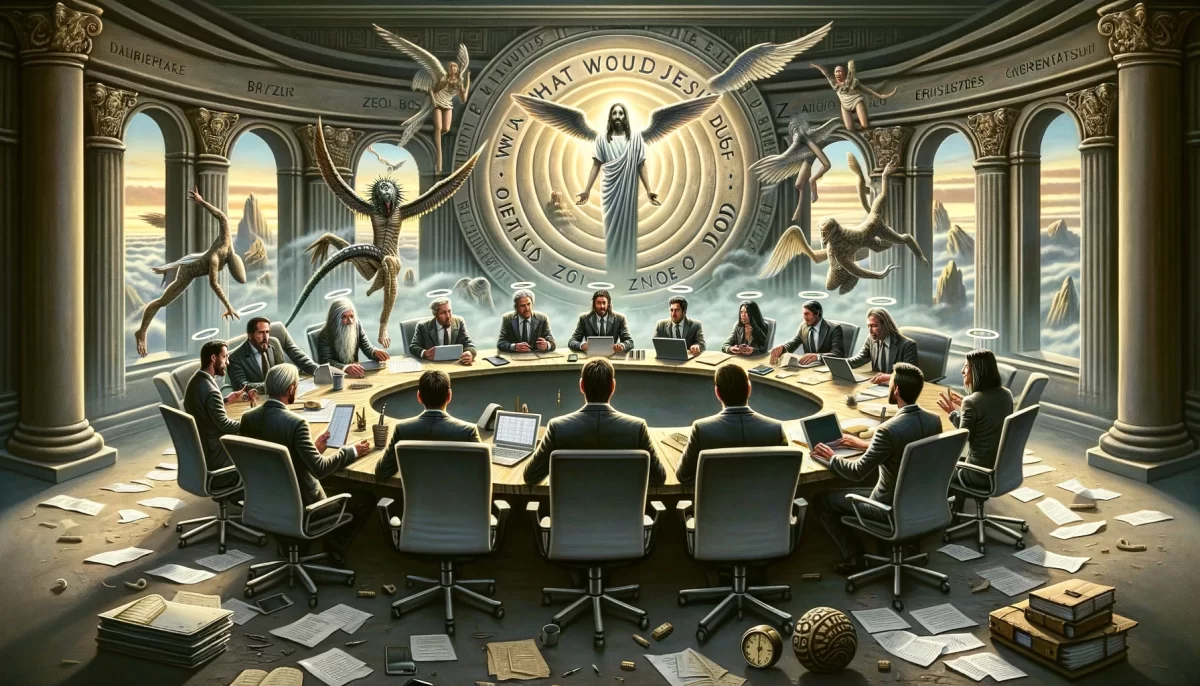


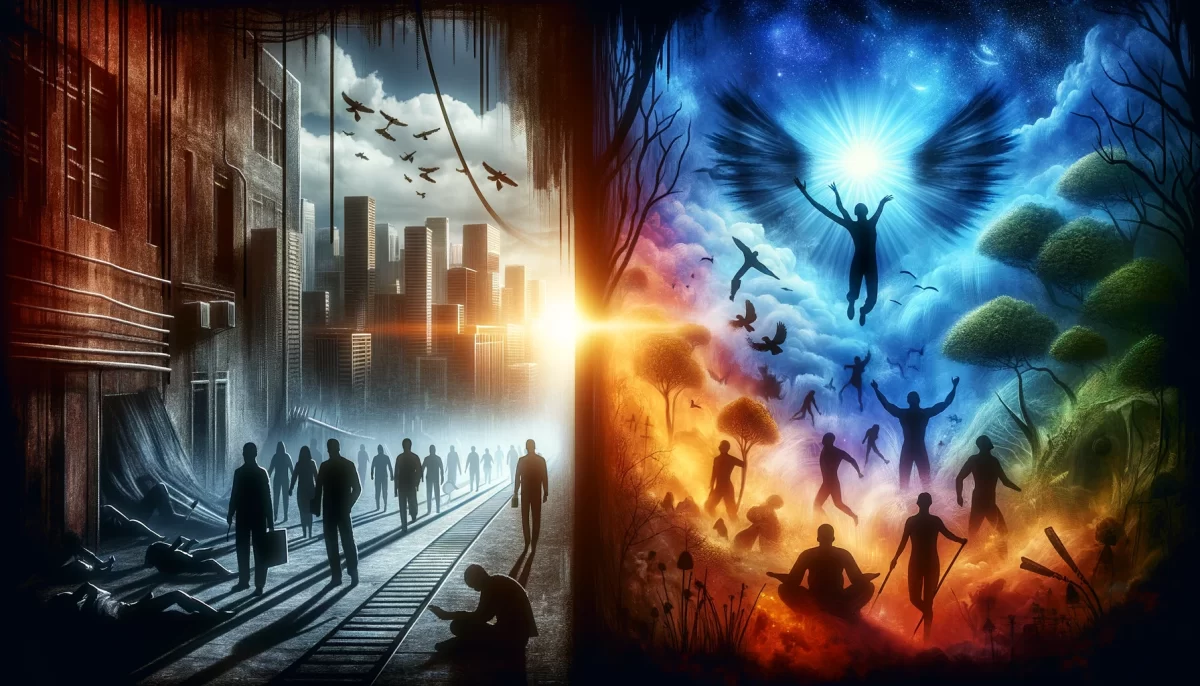









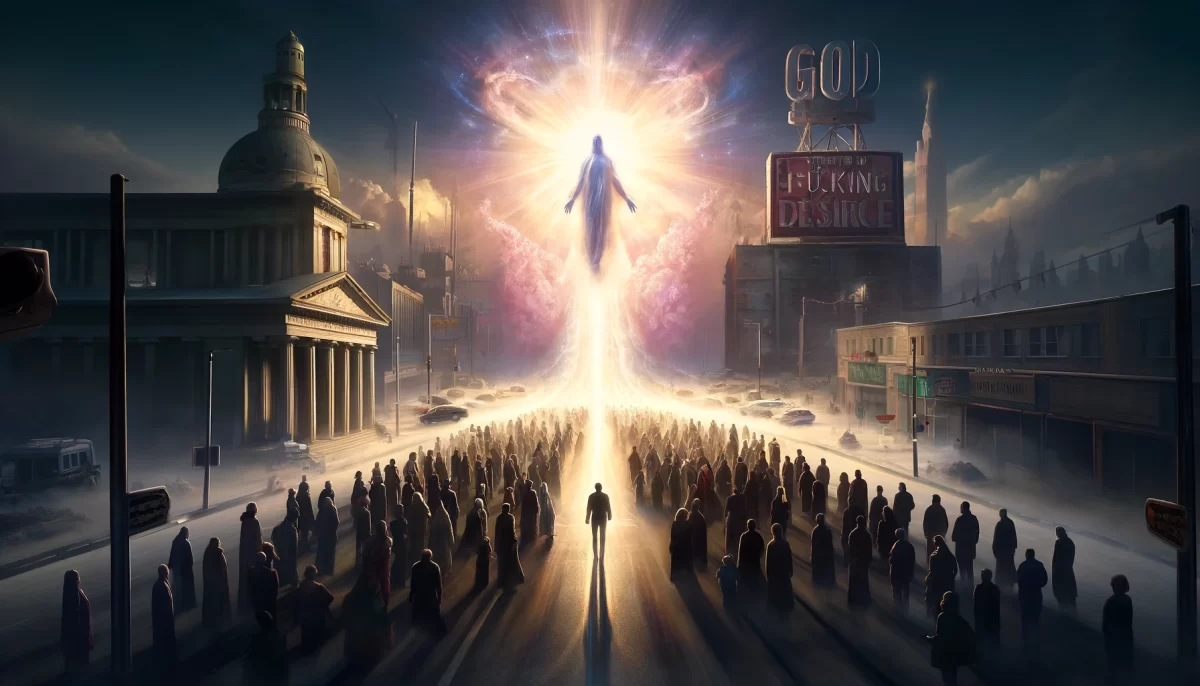







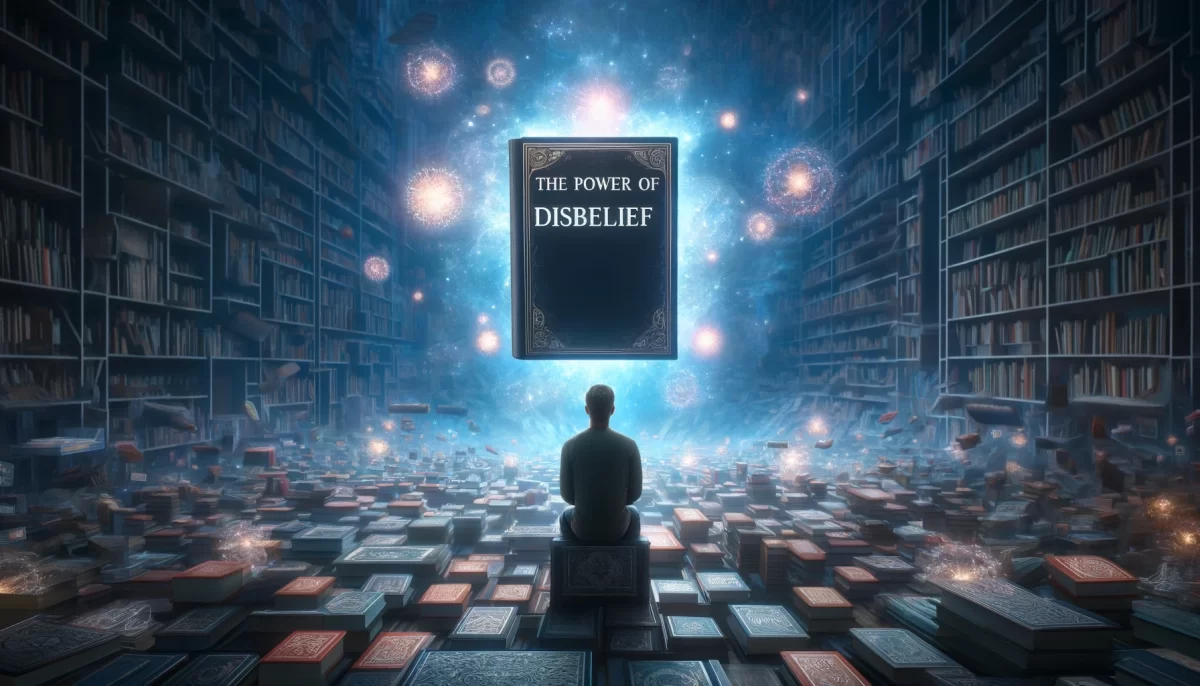


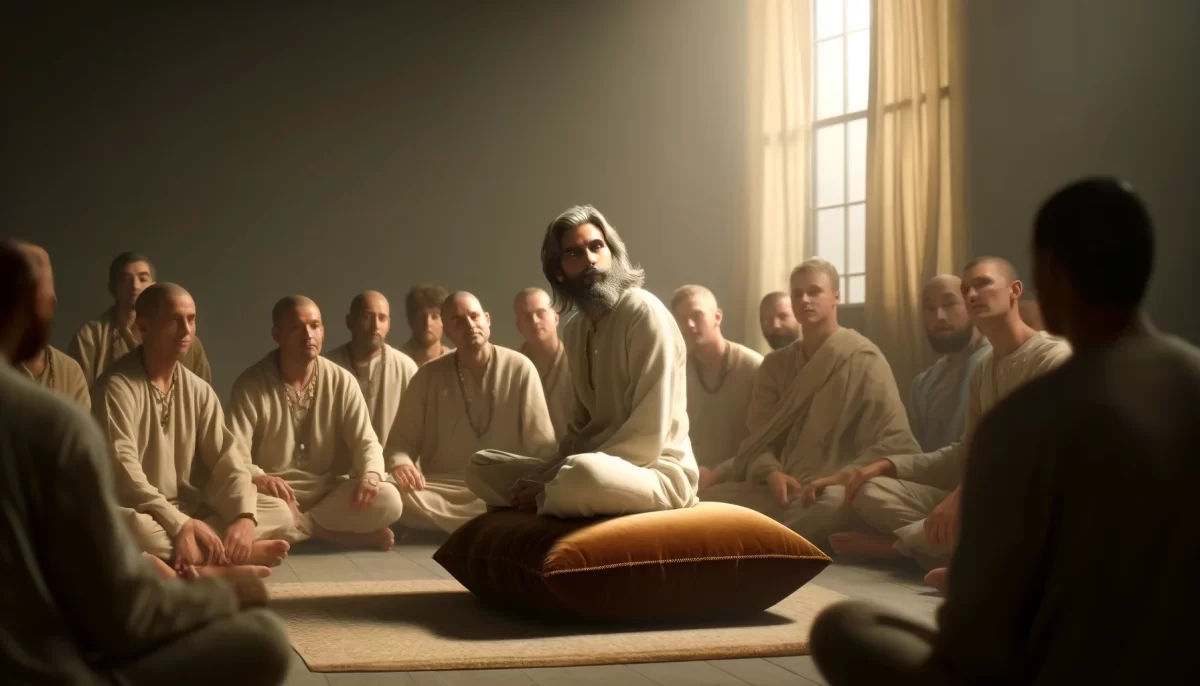




Leave a Reply